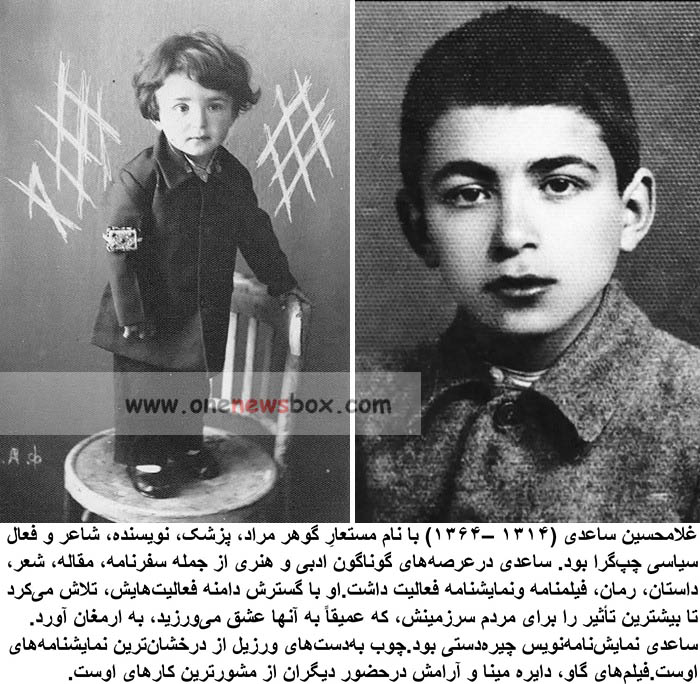Gholamhossein Saedi, known by his pen name Gohar Morad, was a prominent Iranian playwright, writer, poet, physician, and political activist whose impact on Iranian literature and culture remains profound. Born on January 14, 1935, in Tabriz, Saedi’s diverse pursuits across literature, drama, and political engagement reflected his deep love for his homeland and its people. Despite his significant contributions, Saedi’s life was shaped by political struggles, exile, and an untimely death on December 2, 1985, in Paris. This text delves into his multifaceted career, literary works, and political activities, providing an overview of his enduring legacy.
Early Life and Education
Saedi was born into a modest family in Tabriz, with his father, Ali Asghar, working as a government employee, and his mother, Tayyaba, as a homemaker. His early education began at Badr Elementary School, where he demonstrated an aptitude for writing. By 1948, he completed his primary education and enrolled at Mansour High School, a prestigious institution in Tabriz. It was during his high school years that Saedi’s literary journey began. His stories were published in student weeklies, and he wrote a longer piece titled The Fallen, which appeared in the magazine Kabooter Solh.At a young age, Saedi became politically active. As a teenager, he joined the youth organization of the Tudeh Party, a prominent leftist group in Iran. At just 17 years old, he took responsibility for publishing two political newspapers, Faryad and Soo’d. His activism came at a cost; in 1953, at the age of 18, he was imprisoned in Tabriz on charges of collaborating with the party. This early experience of political persecution did not deter him but rather solidified his commitment to advocating for social justice through his art and activism.

